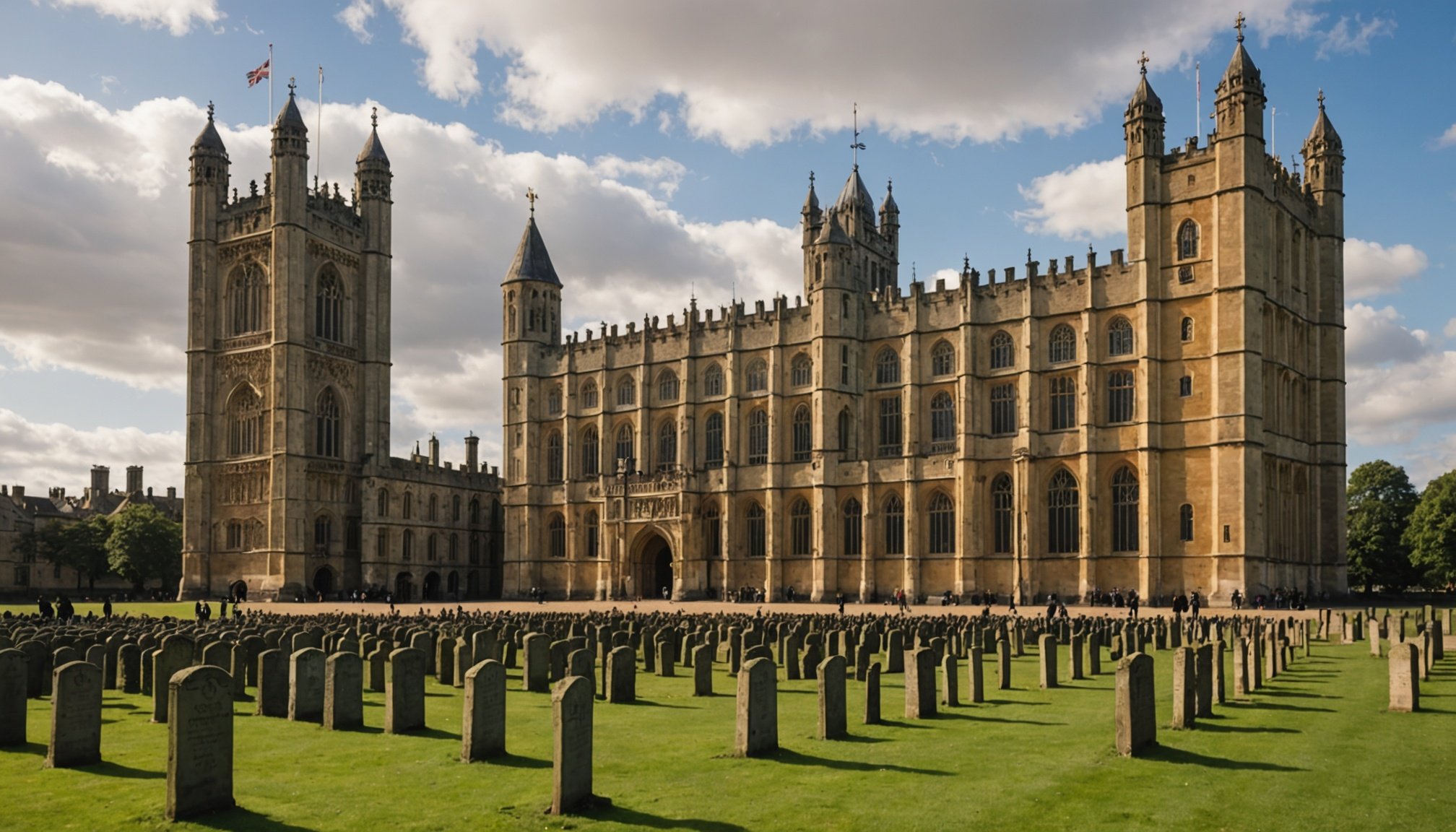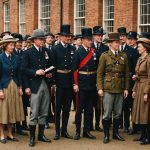The United Kingdom, a tapestry woven with rich threads of history, offers an unparalleled opportunity to delve into significant historical events. As visitors, you are not merely witnesses to the UK’s storied past but participants in its unfolding narrative. From ancient battlegrounds to regal castles, each corner of the UK tells a tale of triumphs and tribulations. This article serves as your guide to understanding these pivotal moments, inviting you to explore the vestiges of time with a lens of curiosity and respect.
The Roman Conquest: Unearthing the Empire’s Footprint
The Roman conquest of Britain marks the advent of Roman influence on the British Isles, a period that began in AD 43 under Emperor Claudius. As you traverse the UK, remnants of this era, such as Hadrian’s Wall and the Roman Baths in Bath, unfold the story of Rome’s enduring impact.
Additional reading : How do you prepare for cultural differences when traveling in the UK?
Understanding the Roman Influence
Roman occupation left indelible marks on Britain’s landscape, culture, and infrastructure. Roads, fortifications, and settlements bear testimony to the sophisticated Roman engineering and strategic prowess. Hadrian’s Wall, stretching across northern England, is a monumental relic of Roman ambition and defense strategy, signaling their attempt to fortify the empire’s borders.
Living History at Roman Baths
In the city of Bath, the Roman Baths offer a glimpse into the opulent lives of Roman citizens. These baths were not merely places for hygiene but also centers of socialization and relaxation. As you walk through the complex, the contrast between Roman architectural ingenuity and the natural hot springs becomes palpable.
In the same genre : How can you utilize travel apps for a smoother experience in the UK?
The Legacy of Roman Law and Culture
Roman rule introduced legal systems, urban planning, and architectural styles that influenced subsequent British societies. The integration of Roman culture with native Celtic traditions created a unique cultural fusion, evident in the archaeological sites and artifacts found throughout the UK.
The Norman Conquest: A Turning Point in British History
The Norman Conquest of 1066 is a landmark event that reshaped the political and social landscape of England. Led by William the Conqueror, the Normans brought transformative changes that are still visible today. Exploring sites like the Tower of London and Canterbury Cathedral provides a deep dive into this transformative era.
The Battle of Hastings and Its Aftermath
The Battle of Hastings, a decisive conflict, marked the ascension of the Normans. This battle, memorably depicted in the Bayeux Tapestry, altered England’s ruling dynasty and introduced new governance structures. The Domesday Book, commissioned by William, offers insights into the medieval economy and landholding practices.
Architectural Marvels: Castles and Cathedrals
The Normans initiated an ambitious castle-building program, fortifying their rule and influencing architectural styles. The Tower of London stands as a symbol of Norman strength and innovation, while Canterbury Cathedral exemplifies the fusion of Norman and Gothic architecture.
Cultural and Linguistic Transformation
The Norman Conquest had far-reaching effects on the English language, blending Old English with Norman French to create Middle English. This linguistic evolution is a testament to the dynamic cultural exchange between conquerors and the conquered.
The Industrial Revolution: Engines of Change
The Industrial Revolution, a period of profound transformation from the late 18th to the early 19th century, originated in Britain and spread globally, redefining economies and societies. Iconic locations such as Ironbridge and Manchester highlight the innovations and challenges of this era.
The Birthplace of Industry
Ironbridge Gorge, in Shropshire, is heralded as the cradle of the Industrial Revolution. The world’s first iron bridge, constructed in 1779, symbolizes the ingenuity and ambition that fueled industrial progress. This site is a testament to the pioneering spirit that characterized the era.
Manchester: The Heart of Cottonopolis
Manchester emerged as an industrial powerhouse, earning the nickname “Cottonopolis” due to its booming textile industry. The city’s mills and factories revolutionized manufacturing processes, showcasing the interplay between technological advancements and economic expansion.
The Social Impact of Industrialization
The Industrial Revolution spurred urbanization and significant social changes, transforming the fabric of British society. While it heralded economic prosperity, it also highlighted disparities, leading to labor movements and social reforms that reshaped the nation’s socio-economic landscape.
World Wars: Courage and Commemoration
The World Wars left an indelible mark on the UK, uniting the nation in resilience and remembrance. Sites such as the Imperial War Museums and the Churchill War Rooms offer profound insights into the courage and sacrifices of those who lived through these tumultuous times.
The First World War: A Global Conflict
World War I, “the war to end all wars,” profoundly affected Britain, with millions of men mobilized and countless lives altered. The Imperial War Museum in London houses artifacts and exhibits that bring the stories of soldiers and civilians to life, allowing visitors to experience the war’s human dimension.
World War II: Resilience and Resistance
The Second World War tested Britain’s resolve, with the Battle of Britain and the Blitz emblematic of national resilience. The Churchill War Rooms, once the nerve center of British wartime strategy, offer a poignant glimpse into the challenges faced by leaders and the public alike.
Remembering and Reflecting
Both wars catalyzed social and political changes, leading to movements for peace and unity. Memorials across the UK serve as reminders of the past, honoring the bravery and sacrifices made for future generations.
The UK’s rich historical tapestry is a testament to its role on the global stage. By exploring the significant historical events that shaped the nation, you not only gain insights into its past but also a deeper understanding of the present. Each site and story holds a lesson, offering a unique perspective on the resilience, innovation, and cultural fusion that characterize the UK. Whether you’re drawn to ancient Roman remnants, the aftermath of Norman conquest, the innovations of the Industrial Revolution, or the courage displayed during the World Wars, the UK’s history is a journey of discovery waiting to be embarked upon. So, as you explore these historical landscapes, let the tales of the past enrich your present experiences, leaving you with memories as enduring as the history itself.











